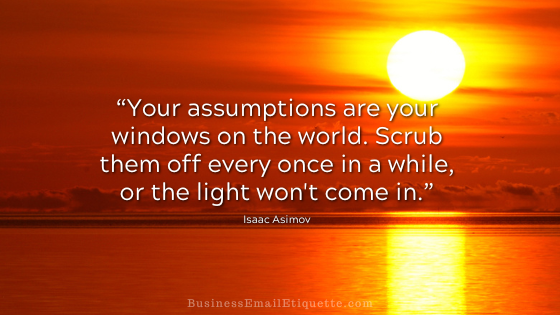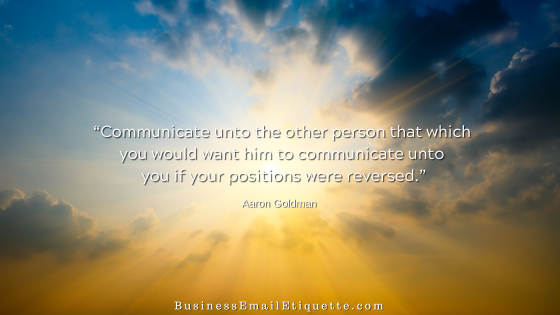You Know What Happens When You Assume?

I see it pretty regularly in email communications. Assumptions are flying all over the place. But, when it comes to your business email communications, you can not, should not, must not assume.
Just one wrong assumption can cost you business or an opportunity. You risk losing a potential client. Or, as I’ve seen happen, business relationships can be compromised due to misunderstandings. Misunderstandings that create a lack of confidence or trust due to incorrect assumptions.
What do we assume in business emails?
Being in business is all about relationships; it is clear that avoiding assumptions is wise.
Just Don’t Assume
If you catch yourself assuming and are unsure what the other side meant, email back and ask for clarification. Try to avoid replying based solely on assumptions.
Put yourself in check to ensure you are not making assumptions backed up by your choice of words and how you use them. Asking for clarification based on unsubstantiated assumptions only reflects what you are assuming.
Assuming intent, tone, meaning, or motive in emails can hinder effective communication; furthermore, it can negatively impact long-term relationships and lead to misunderstandings. That approach is most certainly not suitable for business.
Whether it’s a coworker, supervisor, customer, or new contact, keeping your assumptions in check will help clarify your communication. And build more robust relationships over the long term.
I’ll leave you with this classic…







